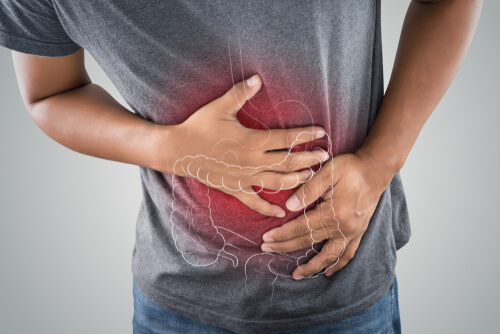Diarrhea - Dubai General Medicine Clinic
What is Diarrhea?
Diarrhea is the passage of many loose, watery, offensive bowel movements. It is a symptom, not a disease. It is usually
associated with colic-type abdominal pain and often with vomiting. It invariably is a self-limiting problem (i.e. it gets better naturally). It is commonly caused by an infection of the intestines such as gastroenteritis or food poisoning.
What are gastroenteritis and enteritis?
Gastroenteritis means infection of the gastrointestinal tract from the stomach to the intestine. It causes vomiting and/
or diarrhea and is very common in children. ‘Gaster’ is the Greek word for stomach or belly and gastritis means inflammation of the stomach. It causes vomiting. ‘Enteron’ is the Greek word for intestine and enteritis is inflammation of the intestine. It causes diarrhea. Sometimes enteritis occurs in isolation without gastritis. A classic example
is typhoid, which is also called ‘enteric fever’.
What causes it?
Diarrhea is usually caused by a viral or bacterial infection from contaminated food and water. Common infectious
agents are:
- Viruses (e.g. rotavirus, norovirus)
-Bacteria (e.g. E. coli, Campylobacter, Shigella, Salmonella, Staphylococcus aureus)
-Parasites (e.g. Giardia lamblia, Cryptosporidium)
The germs infect the lining of the intestines which become irritated and inflamed. This affects the absorption of water
from the feces.
Most episodes last for such a short time that a search for the cause is not necessary. However, if it lasts for 12 hours
or longer, medical attention is needed. If it is associated with continuous vomiting, fever, and the passage of blood, pus, and mucus, it requires close attention.
The feces and blood may need to be tested. Uncommon infections to be excluded are typhoid and cholera, as well as parasite infestations with Giardia lamblia and amoebae. If you have diarrhea on returning from overseas, it must be checked out.
Giardia lamblia infection produces ongoing abdominal cramps, flatulence, and bubbly foul-smelling diarrhea. It is often misdiagnosed. A common problem is traveler’s diarrhea, which is usually caused by E. coli from contamination by feces in water supplies.
It affects people whose stomachs are not immune to the germ. People can even acquire this problem in their own First World countries. Other possible causes are acute appendicitis, rich food, prunes, food allergy (e.g. dairy products), alcohol, emotional upset, prescribed drugs such as antibiotics and anti-arthritis agents, and excess vitamin C.
What is the treatment?
Rest
- Your bowel needs a rest and so do you. It is best to reduce your normal activities until the diarrhea has stopped Diet.
- It is important that you avoid solid food at first, but drink plenty of fluids to prevent dehydration, including small amounts of clear fluids such as water, tea, diluted cordial and yeast extract (e.g. Vegemite), or an electrolyte solution such as Gastrolyte or Hydrolyte, until diarrhea settles.
- Then eat low-fat and starchy foods such as stewed apples, rice (boiled in water), soups, poultry, boiled potatoes, mashed vegetables, mashed bananas, dry toast or bread, biscuits, most canned fruits, jam, honey, jelly, dried skim milk or condensed milk (reconstituted with water).
- Avoid alcohol, coffee, strong tea, fatty foods, fried foods, spicy foods, raw vegetables, raw fruit (especially with hard skins), spicy Asian food, wholegrain cereals, and cigarette smoking.
- On the third day introduce dairy products such as yogurt containing live cultures, a small amount of milk in tea or coffee, and a little butter or margarine on toast. Add also grilled lean meat and fish (either grilled or steamed).
Medication
- Diarrhea usually settles without the need for medicine. It is best to avoid medicines for diarrhea; however, if it is socially embarrassing, kaolin-based preparations or intestine-slowing drugs such as loperamide (e.g. Imodium, Gastro-stop) or Lomotil can be helpful.
- Antibiotics should be avoided unless directed by your doctor.
- Prevention of the spread of infection
- Most cases, especially viral, are very infectious to others.
- Carefully wash hands after going to the toilet and before handling food. A self-drying alcohol hand gel (e.g. Aqium)
is ideal. Carers must do likewise. Stay at home if possible, ideally until 48 hours after the diarrhea ceases. Avoid visiting schools, childcare centers, hospitals, and nursing homes. Don’t swim in public pools.





.webp?width=1080&height=1080&name=Doctor%20background%20For%20Website%20Dr.Akbar01%20(1).webp)

